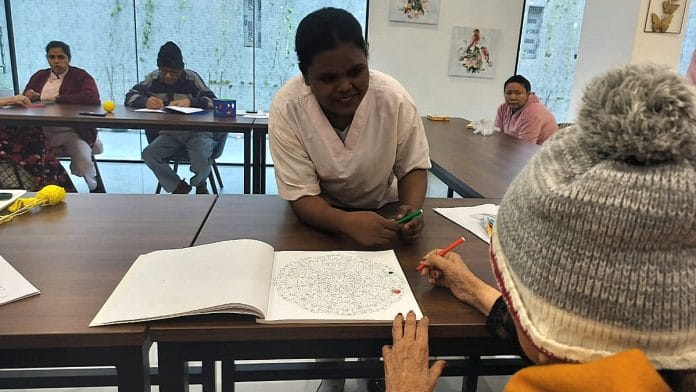Gurugram: Seventy-seven-year-old Rashmi Gautam was home alone when she felt lightheaded and realised she was going to faint. Her children were abroad. Her sister, who lived nearby in Delhi, was away on a trip. But she didn’t panic. She calmly pressed the emergency button on the Emoha app on her mobile phone. Help arrived swiftly—an ambulance with three attendants who took her to Max Saket.
“Even though my neighbours came home immediately, and gave me water and something to eat, I needed professional help to take me to the hospital,” said Gautam.
An India still fixated on the contours of its youth continues to ignore the wrinkling of its demographic—its booming elderly population. But the private sector has answered the clarion call, stepping in to fill the gaping holes left by the lack of government infrastructure and policy.
A 2024 NITI Aayog report on the state of senior care put the industry’s size at about $7 billion—and growing.
“For the first time in India’s history, we’ll have more seniors than younger generations. This will lead to a ton of problems, including security issues and loneliness. Senior care is a ‘silver economy’ that needs more attention,” said Saumyajeet Roy, founder of Gurugram-based Emoha Elder Care.
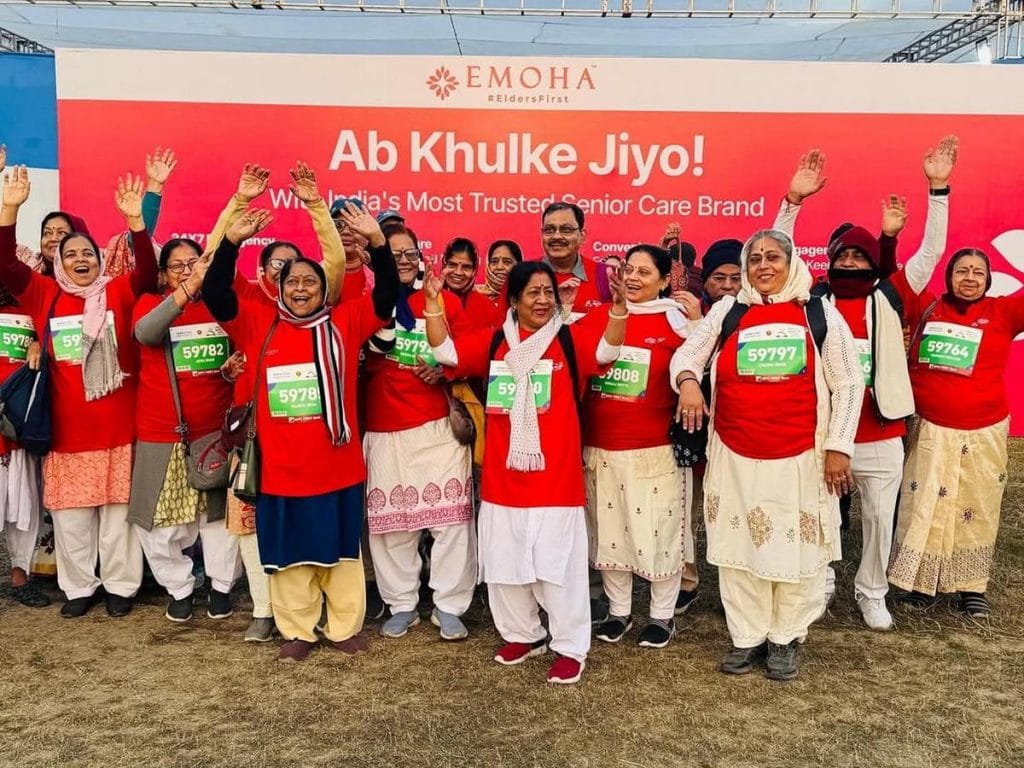
His startup offers packages ranging from Rs 107 a month for basic services to Rs 9,999 for specialised care for cancer, kidney, and dementia patients. There’s even an emotional wellbeing plan and another for errand management.
The last few years have seen a surge in age-tech startups providing a bouquet of services to senior citizens—those who can pay. From assisted living to weekly calls, medicine runs, and access to doctors, nurses, and support staff, companies like Emoha in NCR, KITES Senior Care in Bengaluru, and Pranyaas in Mumbai and Pune are driving India’s $3 billion silver economy.
We have been able to meet so many different kinds of people—business owners, teachers. I am making new friends at this age
-Manila Arora, 72-year-old user of Emoha Elder Care
“We keep talking about kids but nobody talks about senior citizens,” said Roy. “We’ll have more seniors in India than the younger population by 2045.”
The numbers boggle the mind. NITI Aayog projects that India’s older population will reach 319 million by 2050, accounting for nearly 20 per cent of the country’s population. The United Nations Population Fund, India, has arrived at a similar conclusion.
The government can no longer rely on the traditional joint family set up to take care of the needs of the elderly. Not when children have migrated to other countries and nuclear families are the norm.
Gautam recalled how the attendants, especially one named Murali, went out of their way to ensure that she got the care she needed. They followed up with doctors and nursing staff at the hospital, processed her insurance papers, and remained by her side until she was admitted to the Intensive Care Unit.
“I was amazed by Murali’s efforts who was with me throughout the process. He even signed for me on behalf of my family. And once I was in the ICU, he took special permission from the hospital and came to visit me. It raised my spirits,” said Gautam, who did not want to disclose details of her illness. “When a person is sick, they need emotional support, not just medicines and injections, we are not bots.”
There’s a single common thread running through these startups—the promise of care with empathy. It’s a sharp U-turn from traditional medical facilities and hospitals that treat diseases and not the patient.
Also Read: What brings joy to India’s elderly? There’s more to them than RWA, bhajans, ashrams
Home visits to hospital aftercare
The care and services that Gautam received form the core philosophy of Emoha’s business model.
“Fundamentally, it is about providing a peaceful life to the elderly. Geriatric care is not just about disease but also about desire and lifestyle, and that is what our services are focused on,” said Roy, who has been working in the elderly care sector for almost 17 years since graduating from the Indian School of Business.
At the time, he helped a healthcare company launch its elderly care vertical. That’s when he realised there was a chasm between the needs of senior citizens and the services available to them.
His research threw up an interesting fact—most senior citizens didn’t want to leave their homes to live at a care facility. Depending on the package a client opts for, the company equips their home with sensors to detect falls and alert their children in case of an emergency.
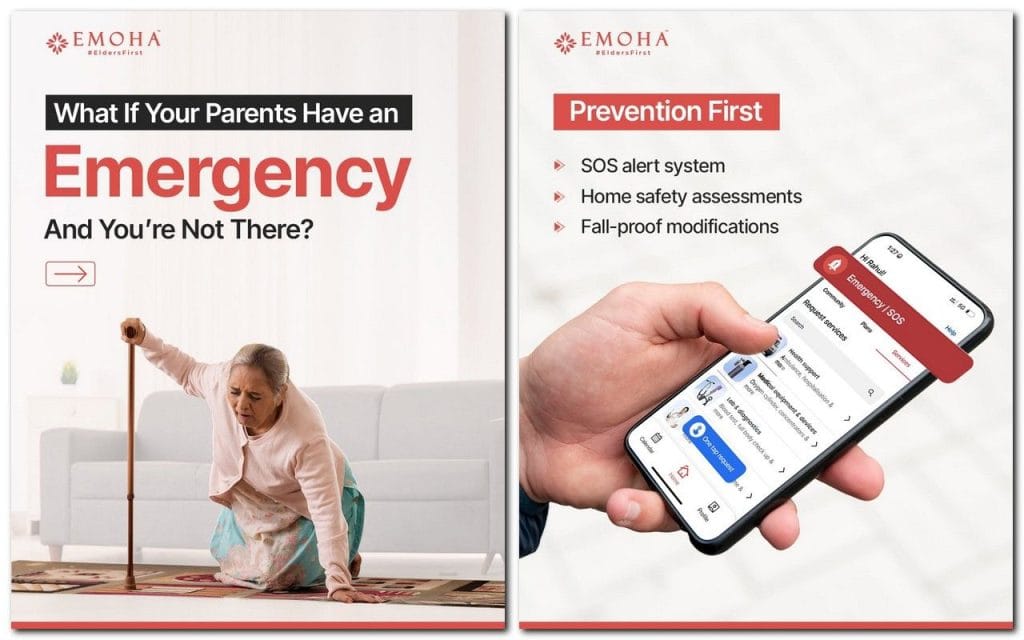
“Healthcare consultation today is mostly about hospitalisation,” he said, adding that this doesn’t work for senior care.
As a counterpoint, an increasing number of startups are built on a model that offers affiliated services, allowing senior citizens to live full and independent lives in the comfort and familiarity of their homes.
Another startup, KITES Senior Care, found a different intervention point—post-hospitalisation care. Founded in Bengaluru in 2016, it started with neighbourhood facilities where senior citizens could get medical consultations. Now, it’s gradually establishing centres for post-hospitalisation and palliative care.
Today, it has three centres in Bengaluru with a clinic, general physician, physiotherapist, and nursing staff. There are also seven centres in other southern cities such as Chennai and Hyderabad. Monthly packages start at Rs 60,000, with the most basic covering nursing assistance.
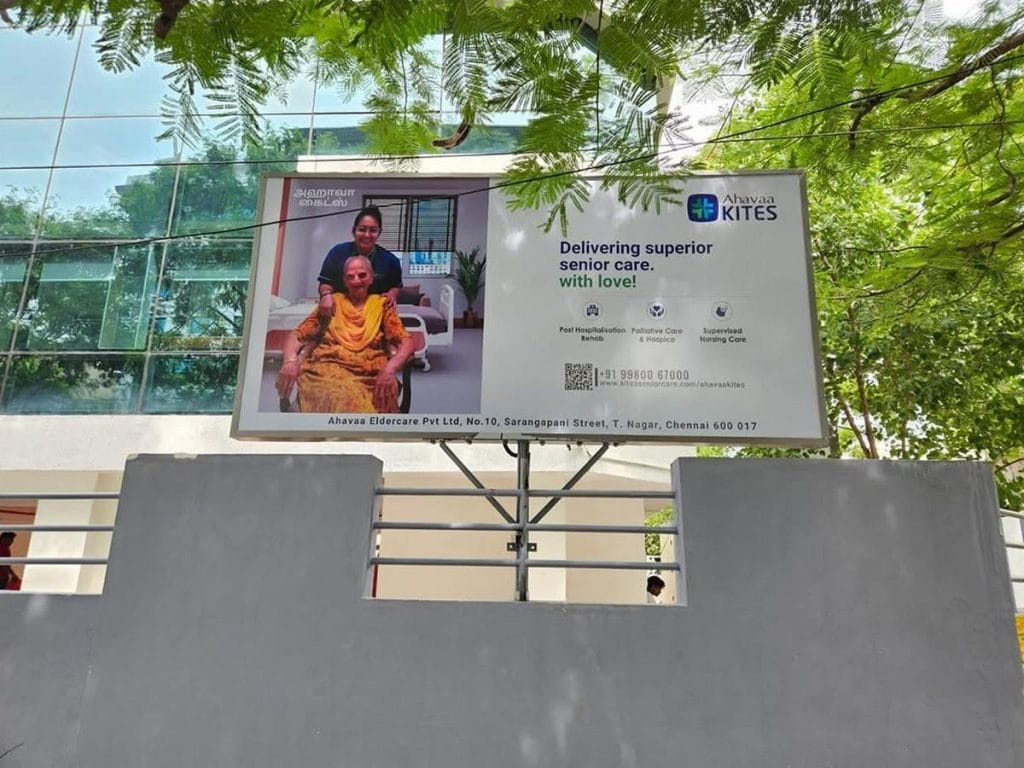
“We wanted to be a trusted partner for the elderly, and so we started a neighbourhood care model in Bengaluru and established activity centres for the elderly,” said KITES co-founder and CEO, Rajagopal G. “We have a large activity centre and created a programme called Elder Shield, where people signed up for mega programmes every Thursday.”
While the market for home-based care was growing steadily, Rajagopal realised there was also a demand for facility-based care. So the company opened its first 45-bedded centre in Bengaluru’s Hebbal in 2019 to provide post-hospitalisation and palliative care.
India’s cultural system of living with parents is very different from the global north where this isn’t the norm. Our assisted living spaces follow the US model, which makes them culturally inappropriate for most older people
-Dr Manveen kaur, geriatric specialist
“There are strong demands: elders want rehabilitative post-hospitalisation care, palliative care, and support for dementia. All our centres provide all three,” said Rajagopal.
Unlike Emoha, whose clients are senior citizens living away from their children, KITES’ clients often have family in the same neighbourhood.
“With most of our elderly receiving post-hospitalisation care, their children live nearby and make frequent visits. In cases of dementia and late-stage care, the elderly also check out of our facility [for short periods to stay with family],” said Rajagopal.
A 2023 study by Samarth, Tata Trust, and UNFPA estimates only 1,150 state-run senior care facilities are currently operational across India, with a capacity to house just 97,000.
An emotional lifeline
There’s a single common thread running through these startups—the promise of care with empathy. It’s a sharp U-turn from traditional medical facilities and hospitals that treat diseases and not the patient.
“People are not just body parts, they also need emotional nourishment,” said Roy. His company has a vertical called Emoha’s Daughters, where each client is assigned a remote caregiver. All the caregivers are women, offering counselling sessions as well as daily check-ins on their wellbeing.
The Emoha app also has a feature called Moh TV—a virtual community where senior citizens can participate in group activities like singing, dancing, and painting from their homes. It provides members with conversation, comfort, and a sense of belonging.
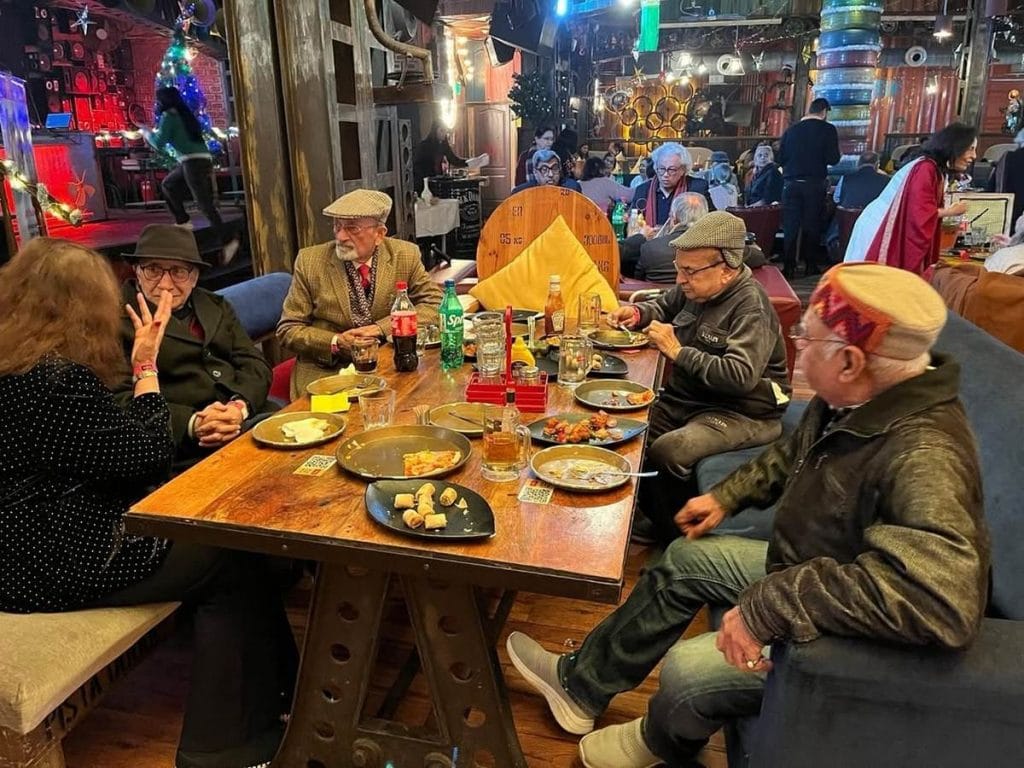
“I have made over 30 friends through the Emoha app who talk to me daily,” said Gautam. She’s immensely proud of the fact that she has participated in over 30 dance events and won 30 virtual competitions.
“I have even given lessons in Salsa to the CEO!” she said chirpily.
This sense of community is crucial for senior citizens, who often battle loneliness, said experts. According to the 2011 census, 15 million senior citizens in India live alone, and three-fourths of them are women.
Gautam, a trained counsellor herself, consistently talks to other members on the app who share their struggles with solitude.
“I talk to people my age, try to pull them out of suicidal thoughts. You’d be surprised how many people just lose any will to live,” she said. And that’s where the Emoha daughters come in. A simple call asking if all is well can go a long way in easing anxiety and loneliness.
Through WhatsApp groups, Emoha members also plan tours to different states and even countries. The company deputes some Emoha daughters to coordinate and accompany these trips.
‘Daughters’ on call
Sumitha Kadam is a ‘daughter’ to 40 people on any given day.
She maintains an elaborate digital rolodex. And whenever she dials a number, her notes about the senior citizen on the other end of the line come up, giving her a detailed history of their dislikes, desires, and disorders. While most of the check-ins are remote, she does makes regular field visits to meet her ‘extended families’ in person.
But there is one person’s number she’ll never get to dial again. And she cannot bring herself to delete it.
“One of my elders had stomach cancer. And his children weren’t with him in Hyderabad, so I used to speak to him very regularly. He used to tell me about his fears, and I used to give him hope that there’s another day to live,” said Kadam, who works as an Emoha ‘daughter’ in Hyderabad.
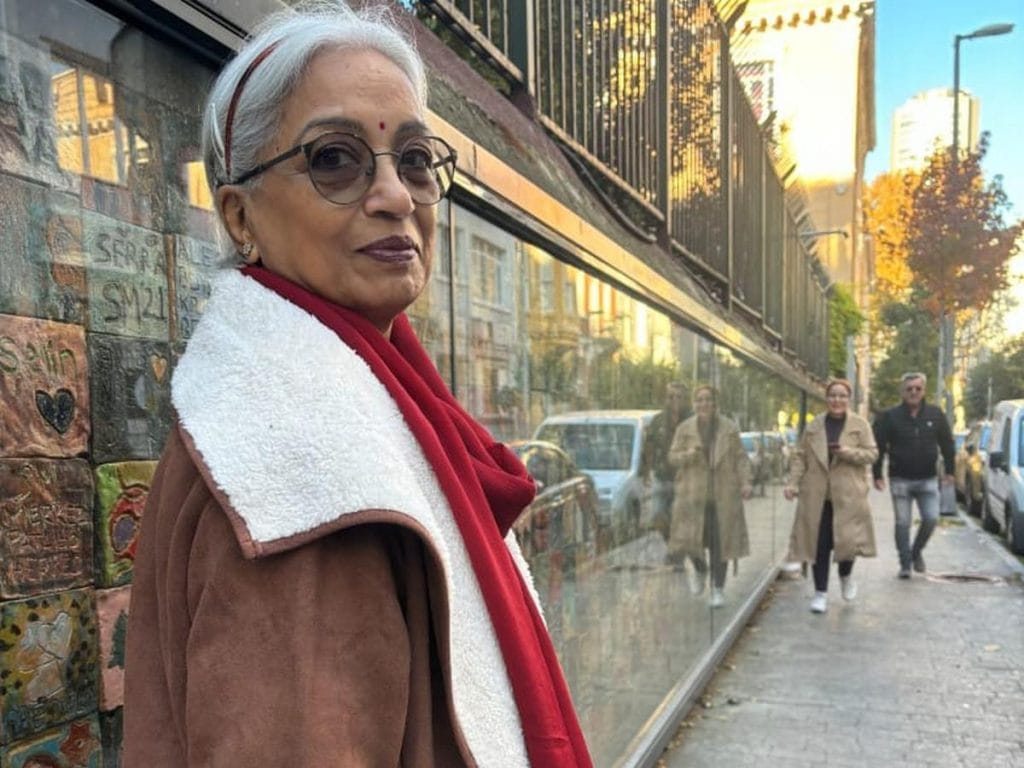
Kadam knew everything about her client, who was in his 70s—his relationship with his children, food he couldn’t eat, his exercise routine, and his struggle with a terminal illness. He told her about every intimate detail of his life, and she was with him, holding his hand in his final days.
“When I heard about his passing, I was numb,” Kasam said. “It took me three months to come to terms with the fact that he was really gone.”
Emoha’s daughters are described as the beating heart of the company by Roy. They are the first point of contact for any elder with Emoha. Only women have been hired for the role, based on the notion that they are better caregivers.
“So many women have to leave the workforce after maternity. We give this job exclusively to women so they have an opportunity to earn good money remotely,” Roy said.
We try to personalise the food according to the preferences of our residents. This includes regional preferences. Our kitchen even learnt how to make a Parsi dish for one resident after realising they were not eating breakfast because they preferred it the Parsi way
-Neha Sinha, dementia specialist and co-founder of Epoch Elder Care
Through WhatsApp groups, Emoha members also plan tours to different states and even countries. The company deputes some Emoha daughters to coordinate and accompany these trips.
Manila Arora, 72, a former counsellor and army wife, has taken five trips with Emoha so far—Ayodhya, Prayagraj, Istanbul, and Vietnam. The programmes have given her a deep sense of community.
“We have been able to meet so many different kinds of people—business owners, teachers. I am making new friends at this age!” Arora said.
Some of her new friends open up about the abuse—physical and mental—they endure at home.
“Everyone we meet is facing challenges. Hearing and sharing these stories helps us take on our challenges more bravely,” said Arora.
Easing the toll of dementia
If there is one disease that strips people of any semblance of independence, safety, and security, it’s dementia. And that’s where Epoch Elder Care steps in, with six assisted living centres in Mumbai and Delhi-NCR.
Melodies of Hemant Kumar, Kishore Kumar, and Mohammed Rafi fill the halls of Gustav House, a senior care facility in Gurugram. Senior citizens sit around a table, engrossed in activities like colouring and jigsaw puzzles. All of them need extra care that cannot be provided exclusively at home.
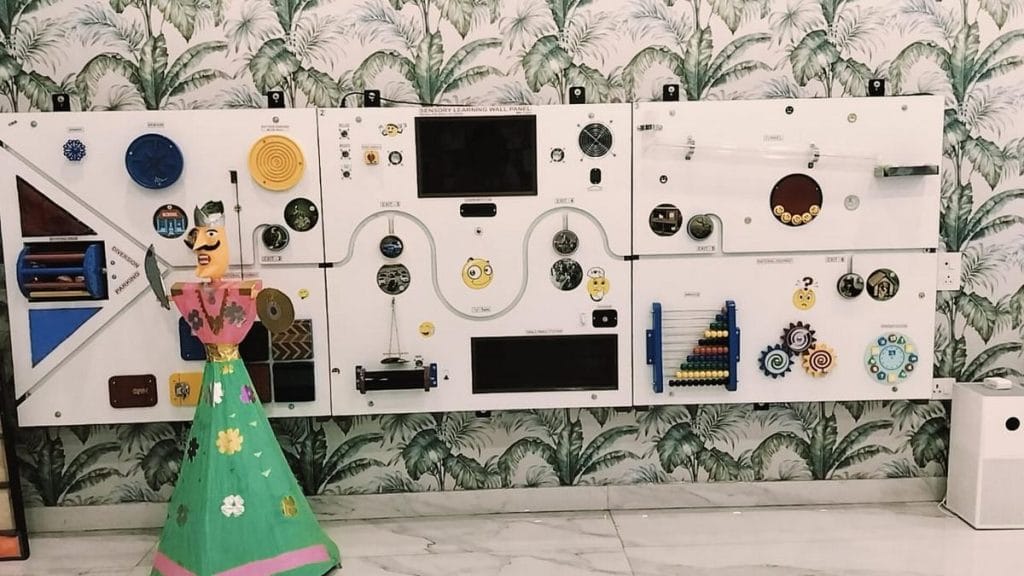
A majority of the residents here have dementia and are looked after by a small army of nurses and support staff, guided by Neha Sinha, a clinical psychologist and dementia expert.
Sinha walked around Gustav House, offering a polite hello to the residents, who returned her greeting with warm smiles. Some reached out and stroked her head gently.
Sinha co-founded Epoch in 2012, but it was acquired by Age Care Labs, the parent company of Emoha, in 2022. A clinical psychologist, she ventured into elderly care with a specialisation in dementia after witnessing her own grandmother’s battle with a degenerative disease.
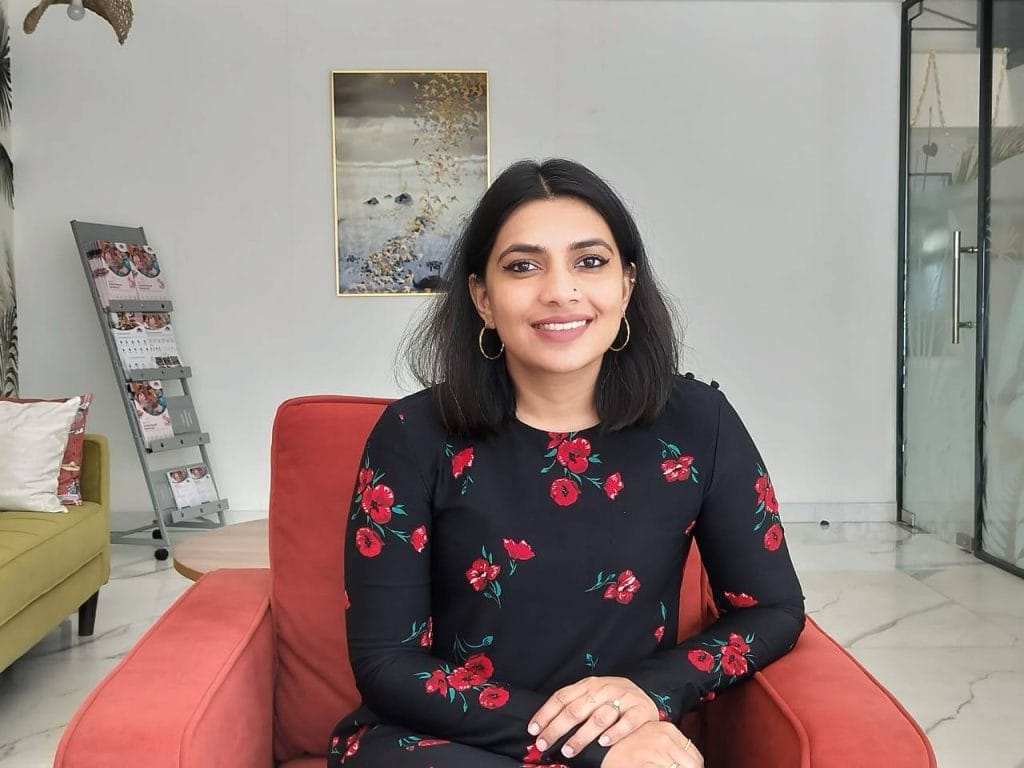
“Epoch was originally founded to solve the problem of loneliness among senior citizens and provide them with companionship. So we used to visit elderly people in their houses, provide day care, and take them out for a day in the sun,” said Sinha.
But after two and a half years, she realised there was an urgent need for specialised care to people with dementia.
“There were actually no such centres out there,” said Sinha.
The living quarters have name cards designed by the elderly residents—colourful paper decorated with glittery fonts and borders. There’s a concerted effort to bring cheer through the decor, with tricolour decorations for Republic Day and red hearts hanging from the ceiling for Valentine’s Day.
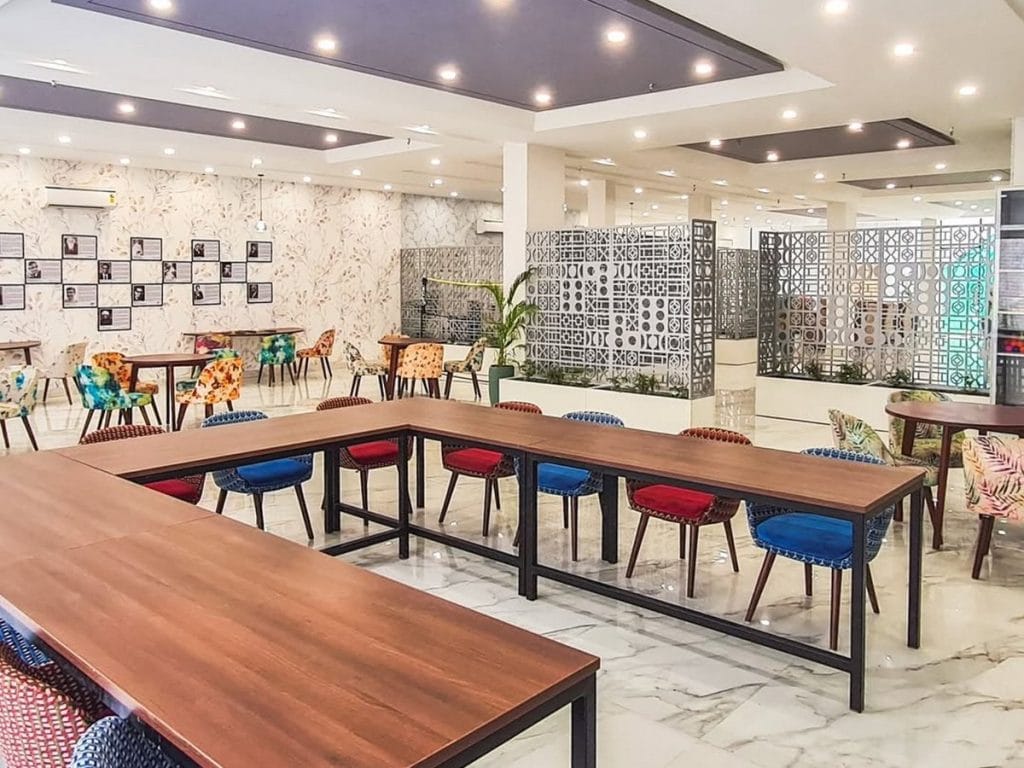
Pinboards on the walls display elaborate timetables and diet charts for all residents, enumerating not just what the doctor prescribes for them but even their likes and dislikes.
“We try to personalise the food according to the preferences of our residents. This includes regional preferences. Our kitchen even learnt how to make a Parsi dish for one resident after realising they were not eating breakfast because they preferred it the Parsi way,” Sinha said.
The activity room looks like a kindergarten play area, with games, puzzles, and a sensory wall for dementia patients. Those without cognitive impairment could be seen assisting and encouraging residents experiencing neurological decline.
But all this comes with a hefty price tag—starting at Rs 80,000 a month. It’s well above what the average middle-class Indian can afford.
Also Read: Rajasthan’s elderly are victims of ‘digital murder’. eKYC gaps leave lakhs without pension
Priced out of care
For most Indian families, assisted living isn’t just out of reach financially. It is a concept that is culturally alien.
“Assisted living is unaffordable, but take a step back and ask—is it even desirable?” said Dr Manveen Kaur, a geriatric specialist and PhD fellow at the NIHR Global Health Research Centre for Multiple Long-term Conditions. “India’s cultural system of living with parents is very different from the global north where this isn’t the norm. Our assisted living spaces follow the US model, which makes them culturally inappropriate for most older people.”
According to Kaur, in India’s largely informal economy, where savings are uncommon, private assisted living spaces are not a solution for most of the population. At the same time, government investment in old-age facilities falls far short of the need and demand.
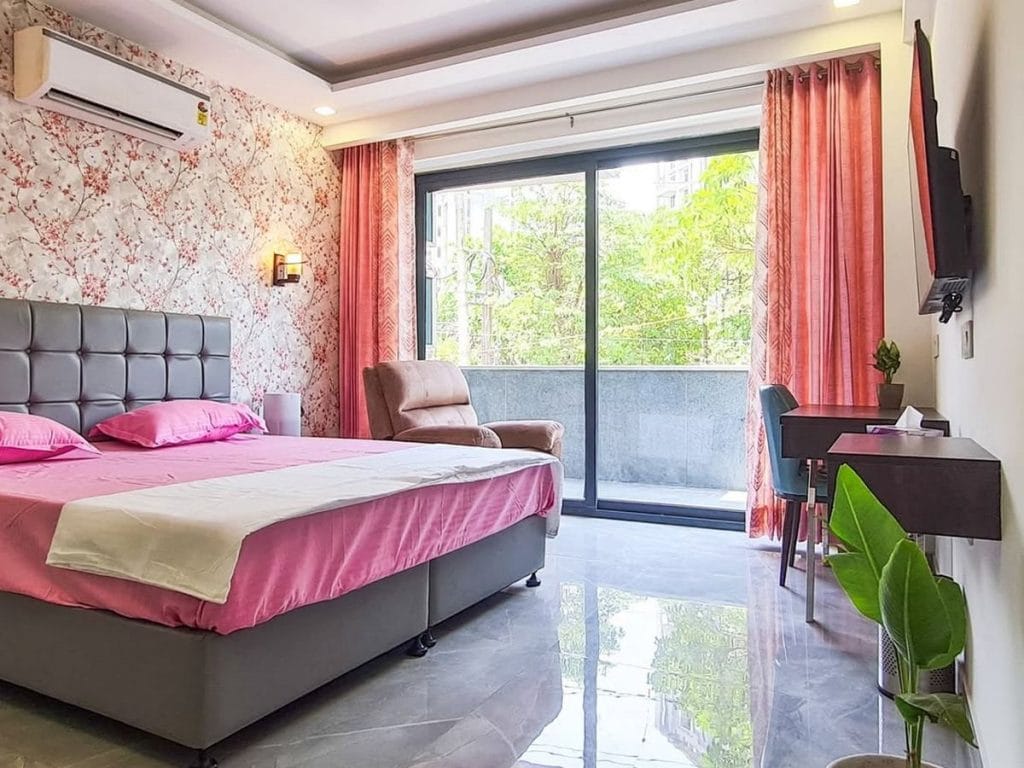
Many elderly people, struggling with poor economic conditions, are abandoned by their families and left on the streets with no recourse. As the ageing population grows, the lack of infrastructure to care for them makes this an even more urgent issue.
“You don’t have a lot of nations mandating you to take care of your parents, unlike India,” Kaur said, alluding to social pressures as well as the Maintenance and Welfare of Parents and Senior Citizens Act, 2007—a law that puts the onus of taking care of elderly parents on their children.
A 2023 study by Samarth, Tata Trust, and UNFPA estimates only 1,150 state-run senior care facilities are currently operational across India, with a capacity to house just 97,000 seniors.
This place feels like home. They tolerate my temperament, even though I know I don’t make it easy for anyone and can get cranky. Nobody has treated me badly
-resident of Epoch Gustav House
Senior citizens are also economically dependent on their families, making them vulnerable to abuse. Only 36 per cent of India’s population over 60 is employed. With lack of government infrastructure, private healthcare remains out of reach for over 40 per cent of seniors, who are categorised as poor, according to NITI Aayog.
Attempts to fill the gap have been few and far between. In 2021, the government launched the Senior Able Citizens for Re-Employment in Dignity (SACRED) portal to help senior citizens find employment. The National Centre for Ageing was also set up as a 200-bedded facility to provide care for older adults and train caregivers.
“National centres for ageing are very important. When you establish one, you promise dedicated funds for elderly care and research. If these centres generate data on ageing in India, that gives you some action points,” said Kaur.
However, she is sceptical of portals like SACRED.
“We’re struggling to create jobs for the youth. And here we’re talking [about employing] the older generation. Also, the demographic this is targeted at has already done back-breaking work their entire life,” she said.
Back at Epoch’s Gurgaon facility, a 77-year-old resident who did not want to be named recalled waking up to find herself there after a major surgery. Her family had decided to move her to this house for specialised care after her health deteriorated.
Being home-bound was a huge change from her globe-trotting lifestyle, where she had once run a garment export business. But after a few months at Epoch, here, she has adjusted.
“This place feels like home. They tolerate my temperament, even though I know I don’t make it easy for anyone and can get cranky. Nobody has treated me badly,” she said.
But she’s not a huge fan of the activities organised by the facility.
“I don’t want to play all these games. Why should I play… there’s nothing to live for any more,” she said matter-of-factly.
This article is part of Grey World, a series on India’s senior communities. Read all articles here.
(Edited by Asavari Singh)



